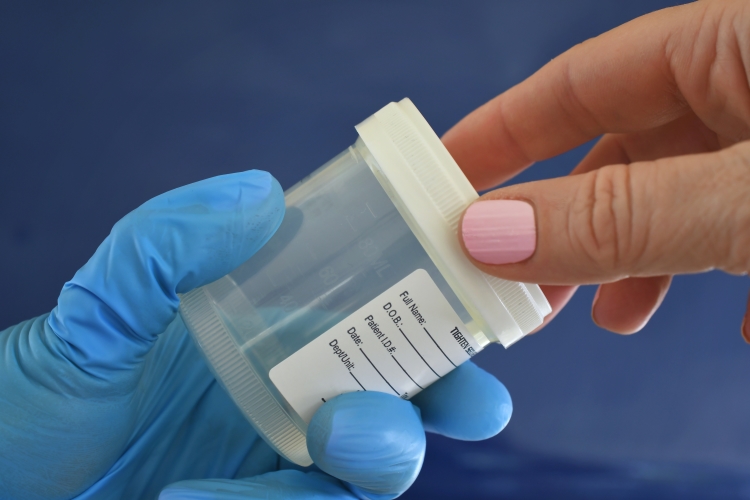Our Blog Post

Can I Demand a Drug Test for Custody?
One of the hardest parts of splitting up with a co-parent, whether or not you’re married, is losing time with your child. That’s hard enough on its own—but when you know that your co-parent has issues with substance abuse, you don’t just miss your child. You worry for their safety. That’s why many people who turn to child custody lawyers wonder if they can require their co-parent to take a drug test before taking possession of their shared child.
At the Law Office of Taylor B. Warner, APLC, we understand the fear that comes with sharing custody of your child. Our team, led by attorney Taylor B. Warner, advocates for clients in tough situations just like yours. Known for our commitment to our family law clients, we’re here to help you navigate the next steps in your child custody case. Call our child custody law firm in California at 909-466-5575 to learn more about your legal options.
How the Courts View Substance Abuse
At the heart of every child custody case is what’s in the best interests of the child. Yes, the court will do what it can to protect both parents’ right to time with their child—but at the end of the day, it comes down to what best serves the child. That’s why state law outlines what it means to make decisions in the best interests of a child.
Family Code 3011(a)(4) specifies that habitual or continued use of controlled substances or alcohol may be taken into account when deciding custody. However, the court also often requires independent corroboration of these claims—which means that your word alone may not be enough to have the court consider your co-parent’s substance abuse. Evidence that may be used to support your claim includes police reports, information from probation officers, medical facility reports, rehab facility reports, and other third-party verification of substance use. This section applies to excessive alcohol use, the use of illegal substances, and the abuse of prescribed controlled substances.
Can a Parent Demand a Drug Test?
One parent cannot unilaterally demand a drug test as a condition of visitation or custody. However, they can ask the court to order drug tests as part of an ongoing custody schedule. This typically involves working with a child custody attorney to fill out and file FL-300, Request for Order. You’ll need to explain why you believe drug use or alcohol abuse is occurring, how it affects your child’s safety and welfare, and what you would like the judge to order.
However, these requests can also happen in the context of a standard custody dispute. If you do not yet have a custody order in place, you may request ongoing drug testing. Your co-parent may agree to testing to prove their sobriety, or they may refuse. Should they refuse, your child custody lawyer will then need to ask the court to order drug testing as part of your custody order.
When Courts May or May Not Require a Drug Test
California courts take claims of drug or alcohol abuse very seriously, but they do not act rashly or without supporting evidence. They are more likely to require drug testing if there is a credible reason to believe that a parent is abusing substances in a way that endangers their child. Common scenarios include:
- A parent with a history of drug-related criminal convictions or DUIs
- History of addiction or failed rehabilitation efforts
- Observable and documented signs of intoxication during parenting time or custody exchanges
- CPS reports regarding the parent’s intoxication and the safety of the child
- Reports from teachers, relatives, therapists, and others about unsafe behavior
A judge may also act more quickly if they have clear evidence a child’s safety is compromised—for example, the parent forgetting to pick the child up from school, getting pulled over for DUI with the child in the car, leaving the child unsupervised, or taking the child to drug deals. It’s not a matter of moral judgment; it’s a matter of what keeps the child safe and protects their best interests.
How Results May Affect Custody
If drug tests show that one parent is abusing drugs or alcohol, the court may order supervised visitation, only allow parenting time if the parent tests negative, restrict custody until treatment has been completed, and require follow-up testing.
Facing Custody Concerns? Speak with a Family Law Firm in California As Soon As Possible
Our team of child custody attorneys is committed to helping you work through this painful and challenging situation. If you believe your co-parent is endangering your child, schedule a consultation at our child custody law firm. Call us at 909-466-5575 or reach out online now.

Taylor has always been an advocate. Growing up the middle child with an older and a younger brother, Taylor developed a strong voice and personality and has always felt strongly about helping others. Becoming a lawyer seemed to fit Taylor’s personality and character – she is a strong leader and a bold advocate. Learn more here.
© Copyright 2025 Law Office of Taylor B. Warner, APLC. All rights reserved.

